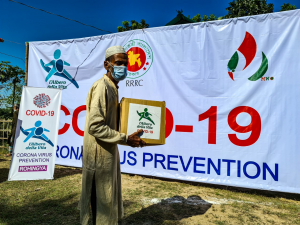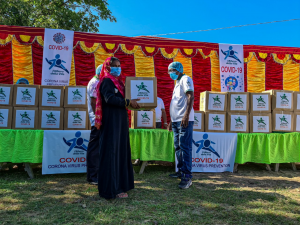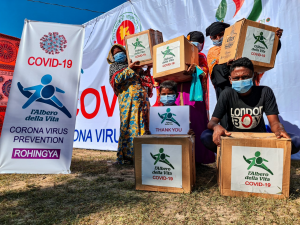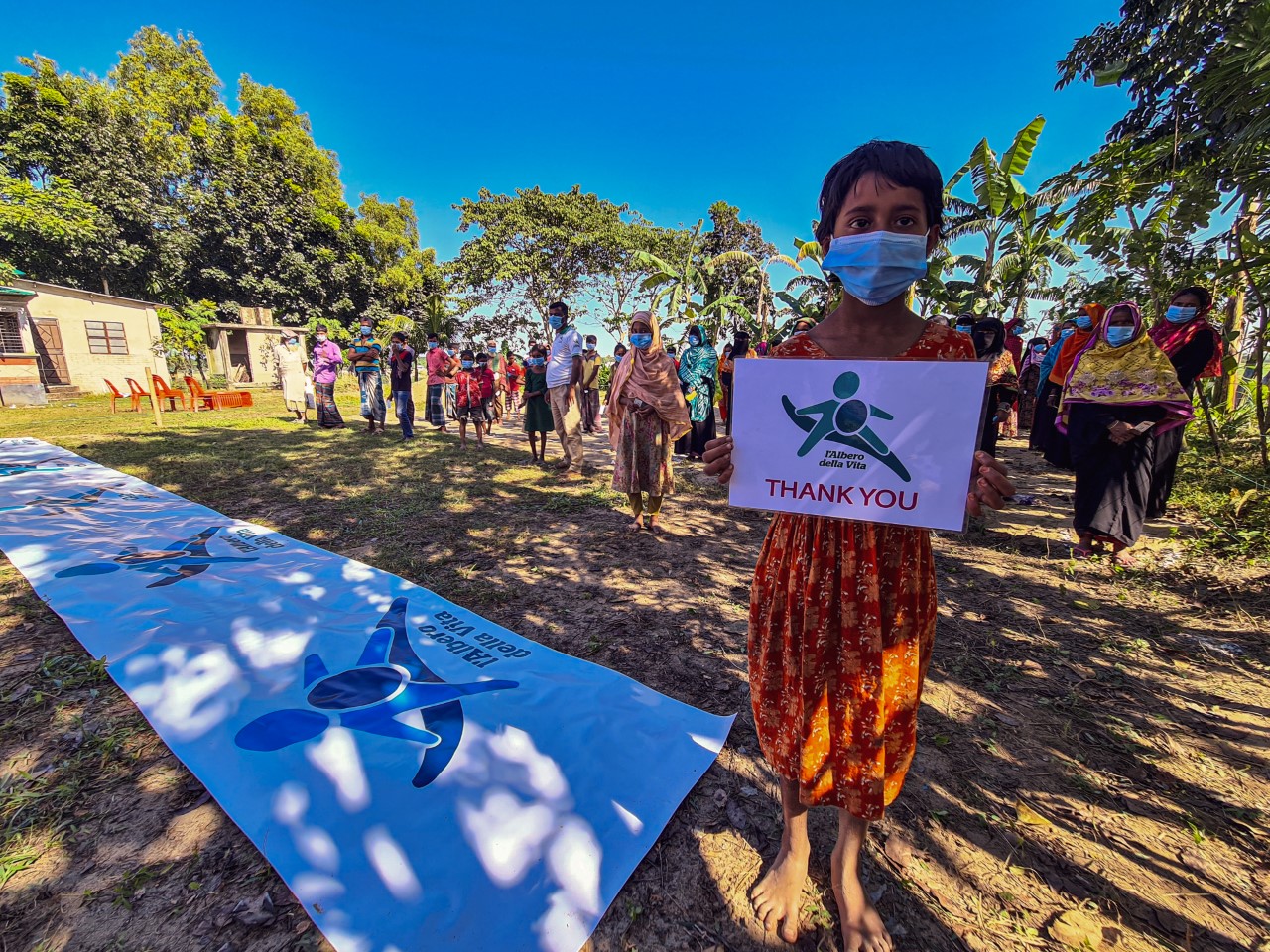Maintaining physical distance inside the Rohingya camps is difficult due to overcrowding. More than 10 people live inside a small room, in the camps in the sweltering heat, with limited access to clean water. People are forced to queue to access food at community distribution points, making physical distancing impossible. On top of overcrowding, many of the people inside the camp have underlying health conditions or have not received standard immunizations, according to the health experts. With this backdrop, FADV took the initiative to provide resources to the Rohingya community to maintain proper hygiene and promote good personal hygiene practices. The distribution was completed on 30th October 2020, in collaboration with the implementing partner Muslim Welfare Organization (MWO).
110 hygiene kits were distributed among 110 vulnerable households in Rohingya camp-1 at Kutupalong. The project impacted 770 distressed and underprivileged people as indirect beneficiaries. Each kit contained hand sanitizer, hand wash, face mask, soap, tissue box, disposal bins, bleaching powder, anti-histamine tablets, and paracetamol tablets to protect the community from the COVID-19 transmission.



The field team of MWO demonstrated safe hygiene practices like the proper way of handwashing, proper use of face mask and hand sanitizer among the community. This activity was done during the home visit as a part of the beneficiary selection process. Leaflets describing good practices was distributed among the community.

